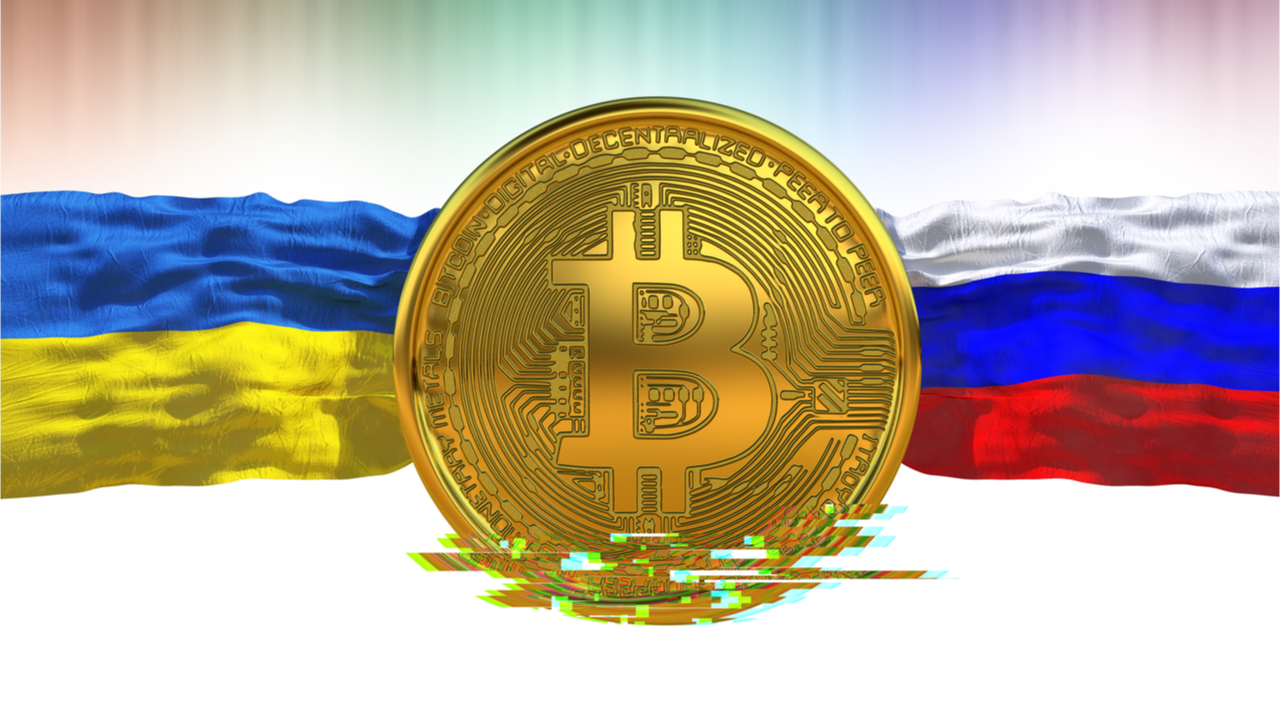
Recent geopolitical developments have upended the ethics and self-image of crypto. What does that mean for its future?
Last month, cultural critic Alison P. Davis published an article in The Cut titled “A Vibe Shift is Coming. Will Any of Us Survive It?” The “vibe shift” Davis was referring to had nothing to do with crypto. She was referring to a sea change in pop culture and social trends, particularly in view of GenZ’s ongoing ascendance into trendsetting and cultural relevance. Nevertheless, her positioning caught my eye because she aptly put her finger on something crucial that I’ve also been feeling, particularly as it relates to crypto. The paradigm shift toward the next cultural moment — whatever it is — is perceptible, even if it’s not palpable. We can’t quite make it out, but we know it’s in the room. The concrete conditions haven’t shifted yet, but the vibe most certainly has.

In the days following its publication, “vibe shift” captured Twitter’s attention and, in many cases, its derision. However silly the term, it captures something real and similar happening in the crypto space. Ridiculous as it may initially sound, there’s a vibe shift happening in crypto.
I like the term “vibe shift” because it’s about exactly that: a feeling, a hunch, a mood, a tone, a vibe. Across its brief history, crypto’s vibe shifts have followed changes in the technology itself. Crypto’s initial wild west, anything-goes optimism stemmed from Bitcoin’s (BTC) transition from a peer-to-peer (P2P) payment solution to a store of value, then grew even more manic with the introduction of Ethereum, which demonstrated the potential of smart contracts. This half-manic optimism grew more serious and businesslike as decentralized finance (DeFi) expanded on the back of legitimate level-two networks. The development of nonfungible tokens (NFTs) brought artists and musicians into the fold, not the other way round.
Related: In defense of crypto: Why digital currencies deserve a better reputation
This isn’t a good or a bad thing, it’s just a fact. The technology determines the discourse in DeFi and crypto, meaning that it also dictates the culture. That “this is no longer the case” is an argument you could only make after the actual tech reached a certain level of sophistication and public legitimacy — which is what’s happened with crypto and DeFi. A crypto “vibe shift” is a necessarily new concept, and it’s happening in a particularly interesting way.
How we talk about crypto is changing, in other words, but not in response to the tech itself. People are speaking as if they have more skin in the game and not just because they’ve sunk their own capital into investments. People are thinking bigger about crypto’s role within the wider world, and not just in self-serving terms related to profiting off mainstream adoption.
From profit to politics
Dare I say we’ve gone political? I first noticed it with the Canadian truckers’ protest against vaccine mandates. This issue lit up the crypto space and was not quite over agreement or disagreement with the actual convoy’s goals. Facing a government freeze of traditional assets and being locked out of standard fundraising platforms like GoFundMe, the truckers turned to Bitcoin and raised $900,000 in a matter of days. Subsequent attempts by the Canadian government to lock crypto assets associated with the convoy were only partially successful. After an Ontario Superior Court judge issued an injunction freezing millions of dollars in crypto to the convoy, the crypto community responded with a mix of protestation and bemusement. Multisignature wallet Nunchuck had to respond publicly that, politics aside, they couldn’t provide the subpoenaed information even if they wanted to: “We are a software provider, not a custodial financial intermediary,” and one with no way of seizing its users’ assets at that.
Discomfort with the political positions of the truckers aside, the crackdown nevertheless raised some shackles among our space. The idea (turned reality) that a federal government could seize crypto assets with a court order and on grounds related at least in part to ideology runs against everything this community prides itself on. The Russian invasion of Ukraine only underscored this feeling.
Related: Bitcoin at the barricades: Ottawa, Ukraine and beyond
The cryptonomics of war
A few interesting things happened in the initial days of the Russian invasion. The Ukrainian government requested donations in Bitcoin early (inevitably leading to scammers trying to clone the account for their own benefit), then called for crypto exchanges to freeze Russian accounts. Turning crypto into a safe financial haven and reliable store of value for a country at war was a game-changer, the effects of which we’ll feel for years. Many of these exchanges refused, claiming it would unjustifiably punish ordinary Russian citizens for the actions of their leaders. Some of the biggest names in the space seemed to come down on the side of neutrality, but not without qualification. Vitalik Buterin tweeted notably vaguely about crypto’s neutrality.
Reminder: Ethereum is neutral, but I am not.
— vitalik.eth (@VitalikButerin) February 24, 2022
Beyond that, a land war in Europe has predictably made many of us lose our taste for the latest quirky NFT drop, at least for now — there’s more serious stuff to talk about. And, crypto is actually talking about it. That is the vibe shift, and it’s not happening in response to the technology. It’s happening in response to the real world, and it’s changing the contours of the crypto one. It’s prompting a moral reckoning that cuts to the bone of what crypto is supposed to do and who it’s supposed to be for. It’s about the price of neutrality and what exactly neutrality means.
Related: Every Bitcoin helps: Crypto-fueled relief aid for Ukraine
If crypto has penetrated the real world, the real world is now penetrating crypto. The myopic and divorced-from-reality perspective our detractors accuse us of is wearing off. This vibe shift is making it so difficult to predict what comes next, particularly now that we’re suddenly wrapped up in massive geopolitical stakes. The conversation has changed because the rules of engagement have changed. Crypto is all fun and games and apes until someone starts a war. Or, for that matter, a convoy.
The end of history or the future or crypto?
I remain confident in the future of crypto and DeFi, but it’s going to be a complicated future. The Canadian trucker convoy and the war in Ukraine have become unexpected reckonings with no easy answers and, in many cases, some very unsavory ones. Like most everyone heavily involved in this space, I still believe a huge element of crypto’s hard and soft power is related to its bankless decentralized status removed from the traditional mechanisms of global finance. But, these things are never so simple.
The point of a vibe shift is that what comes next is still opaque. We’re just now waking up to the power of crypto and the enormous implications of a legitimate, censorship-resistant financial infrastructure. What that means for the future and where we go from here is uncertain, and we have more on the line than the cultural denizens of New York City to which the term was originally applied. Self-sovereign money that exists outside of traditional finance’s control is untested in the contexts of geopolitical conflict and culture wars. Whatever happens next is going to change everything.
This article does not contain investment advice or recommendations. Every investment and trading move involves risk, and readers should conduct their own research when making a decision.
The views, thoughts and opinions expressed here are the author’s alone and do not necessarily reflect or represent the views and opinions of Cointelegraph.















